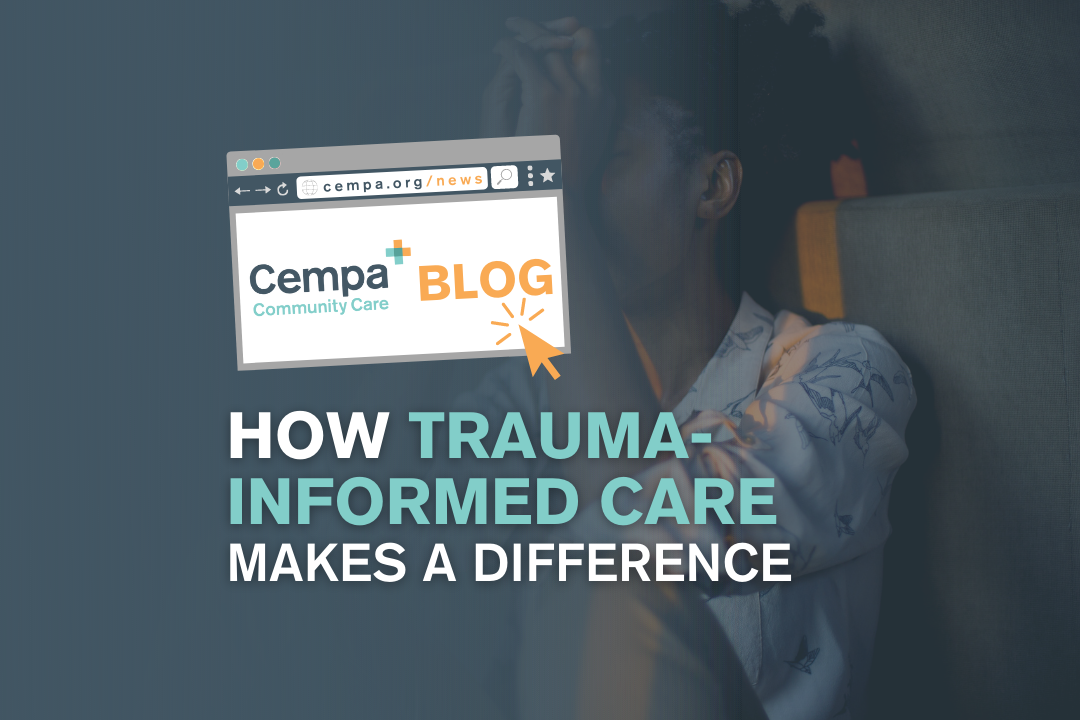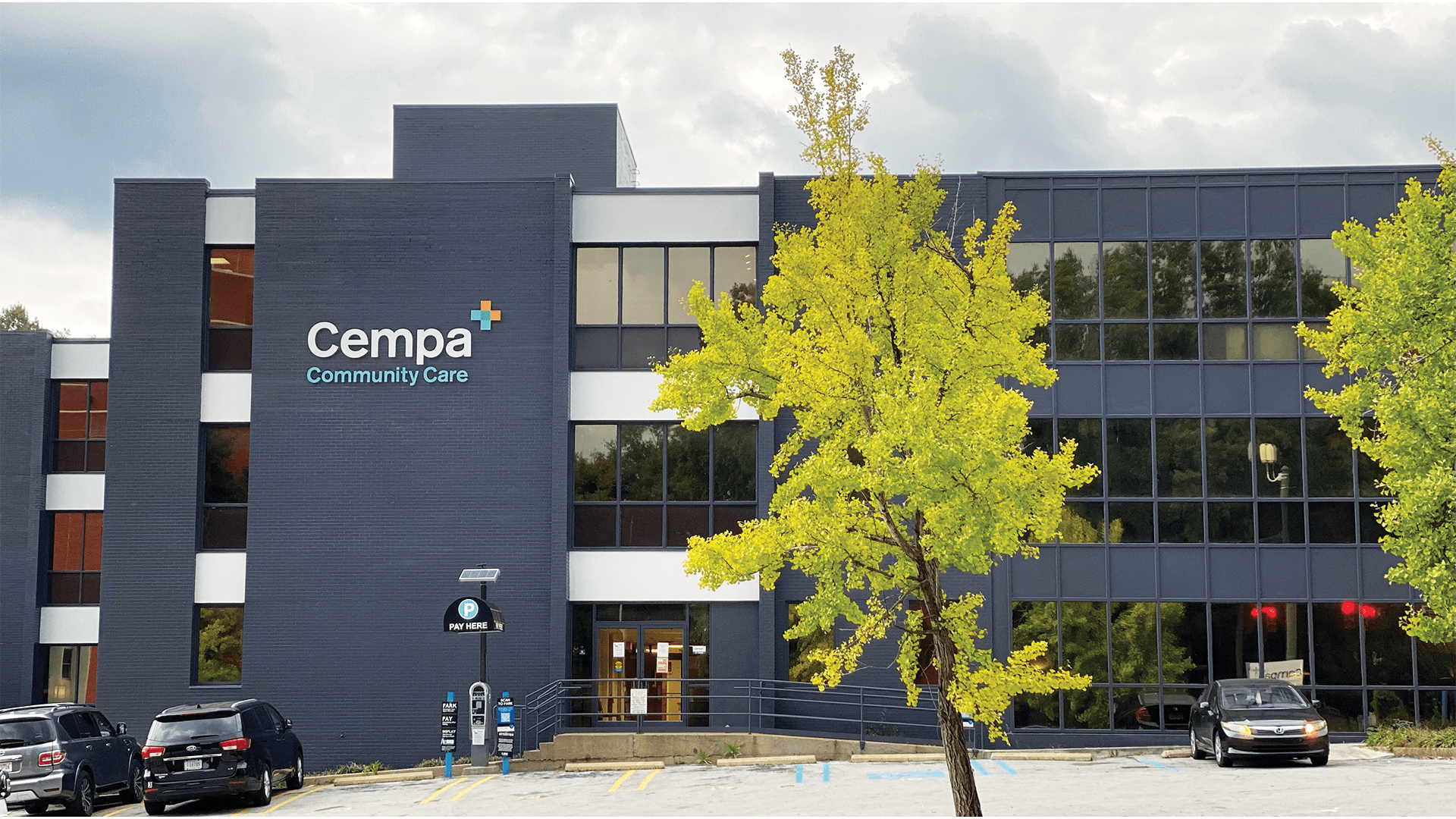When you think about trauma, the physical effects it has on the body may come to mind. But in reality, experiencing trauma can impact nearly every part of health and life.
Research conducted in the 1990s, known as the CDC-Kaiser Permanente Adverse Childhood Experiences (ACE) Study, uncovered the range of effects that trauma can have on a person’s life.
“Trauma can both aggravate existing health issues and cause new ones,” says Kim Sargent, LCSW, therapist with Cempa Community Care. “The ACE study revealed that people who have either experienced trauma or witnessed it have a higher likelihood of teen pregnancy, the onset of diabetes, and all sorts of other physical and mental effects.”
What Happens to the Brain When Trauma Occurs
While physical conditions are one manifestation of trauma, the body and mind are also impacted in other ways. Sargent recommends reading “The Body Keeps the Score” by Bessel van der Kolk, MD, to gain insight about how the brain handles trauma.
“Our brains generate internal signals when we need things, then create the plan to get it done, then create the body reactions needed to make that happen,” Sargent says. “Trauma can have an impact at any of those points.”
Essentially, trauma short-circuits the normal processes in the brain, which impact how we think, act, and feel.
“The emotional mind is the primitive brain, and it’s like a smoke detector. It’s scanning the environment for smoke and then it goes off,” Sargent says. “The cognitive brain is like a watchtower, and it looks out at the environment and makes a determination about what’s causing the fire. It’s where there’s some rationality. When we’re traumatized, it’s hard for the watchtower to engage because the emotional mind is always open and active. It doesn’t allow us to engage the cognitive brain.”
The Effects of Trauma
There’s no single type of trauma — it is any experience that causes intense physical and psychological stress. When a person is traumatized, it can cause a variety of impacts, including:
- Emotional impacts, such as fear, irritability, or shame
- Behavioral impacts, such as self-harm, substance abuse, or violence
- Cognitive impacts, such as memory lapses or difficulty learning and concentrating
- Spiritual impacts, such as feeling disconnected from the world or questioning life and purpose
- Relational impacts, such as an inability to create healthy boundaries or difficulty parenting
These effects, in turn, can cause those who are affected to feel left behind by society or unable to access services and resources to help them overcome trauma. Cempa is taking steps to help bridge that gap, connecting those in our community who have experienced trauma with the care and services they need.
Cempa’s Commitment to Trauma-Informed Care
The Cempa Community Care team recently went through extensive training designed to help them connect with those in traumatic situations or who are experiencing the effects of trauma. Part of that was recognizing the role that a healthcare organization can play.
“We talked about how systems, including the healthcare system, can sometimes duplicate the trauma that people are experiencing,” Sargent says. “We want to recognize that and try to move away from there.”
Cempa’s mission is to champion healthy communities by providing affordable, compassionate, and high-quality care. Helping people cope with the multifaceted effects of trauma supports that mission through a wide range of programs:
- Those who are facing food insecurity can tap into services such as the Cempa Food Market and Meals With Marlee.
- Those who have language barriers can access help through Sepa Con Cempa and the Latinx Outreach Initiative.
- Those who have difficulty getting to and from medical appointments can access care through Community Health Fairs.
- Those who need help connecting with their physical selves can access programs such as Cemple Expressions and the Neighborhood Workout Jam Sessions.
While these programs are all distinct and different, they all have the same goal in mind — creating a sense of safety.
“Our services are designed in a holistic way to help develop feelings of safety and trustworthiness,” Sargent says. “We can make choices available, collaborate, and empower our clients. Within this framework, clients can plug in where they feel safe, which will then better enable them to access the services they need.”
That’s important for any person, but it’s especially important for those who have been touched by trauma.
“It’s ultimately all about safety,” Sargent says. “When people have been traumatized, their safety has been jeopardized. We always want to do what we can do to make people feel safe, and that includes helping people avoid feeling shame.”
Cempa Community Care is committed to improving the health of our community and inspiring change. Whether you need access to primary care, STI testing, or support services such as the Cempa Food Market, we’re here to help.







